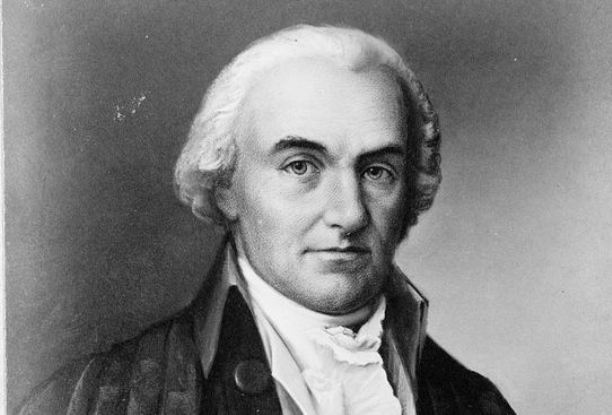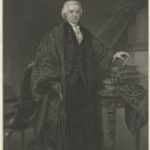
Detail from a portrait of Oliver Ellsworth, ca. 1891 – Library of Congress, Prints and Photographs Division
Oliver Ellsworth (1745-1807)
Oliver Ellsworth was an attorney, lawmaker, and diplomat involved in some of the most celebrated achievements of the colonial period. Born in Windsor in 1745, he studied law and attended both Yale and the College of New Jersey (now known as Princeton) before being admitted to the bar in 1771. Six years later, Connecticut appointed him the state’s attorney. In 1787 he took part in the Constitutional Convention in Philadelphia and, in 1796, accepted an appointment as Chief Justice of the Supreme Court. Ellsworth retired after just a few years but then accepted an appointment as a commissioner to France. He returned to America in 1801 and withdrew from public life, where he passed away in Windsor in 1807.
Featured
Senator Oliver Ellsworth’s Judiciary Act
On April 7, 1789, the Senate appointed a committee, composed of one senator from each of the 10 states then represented in that body, to draft legislation to shape the national judiciary. …[more]





